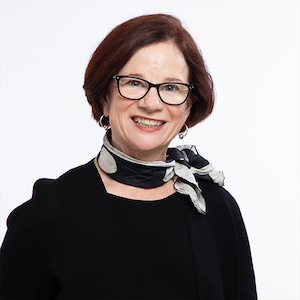For many of us, planned giving seems intimidating—all those complex financial instruments and legal terminology. But here's the thing: the donors you need to reach, especially those born between 1965 and 1980, don't want to hear about charitable remainder trusts on your first conversation either. They want to know how they can make a real difference while being smart about their finances.
Gen X donors are hitting their peak earning years right now, and they will be the primary recipients of the Boomer estates. So, they’re thinking about legacy in ways that might surprise you. Let's break down how to reset your planned giving approach to connect with this unique generation.
Understanding Your Gen X Prospects
Gen X donors grew up during economic uncertainty—they lived through the 1980s recession, watched their parents get laid off during corporate downsizing, and entered the job market right around 9/11. They're skeptical of institutions but deeply committed to causes they believe in. They value authenticity over polish and results over promises.
Most importantly, Gen X donors don't separate their personal values from their financial decisions. They want to know that their charitable giving—both now and in the future—aligns with their overall life goals and makes practical sense.
Start with Simple Conversations, Not Complex Solutions
With Gen X donors, start by asking about their goals and concerns. They care about the cause but wonder if their giving makes a difference.
Your first conversations should sound more like financial planning discussions. Ask questions like "What would you want your legacy to look like?" or "If you could solve one problem in our community, what would it be?" These donors appreciate it when you take time to understand their situation rather than immediately launching into gift options.
Focus on Impact and Transparency
Gen X donors want to know exactly how their gifts will be used and what specific outcomes they will achieve. Instead of saying "Your bequest will help ensure our mission continues," try "Your gift could fund our youth mentorship program for three years, directly impacting about 150 at-risk teenagers." Be specific about how planned gifts fit into your organization's long-term strategy and how they differ from annual giving in terms of impact.
Make It Personal and Flexible
Gen X donors do not want cookie-cutter approaches. They have seen enough mass marketing to spot generic strategies from a mile away. Your planned giving program needs to feel customized to their specific situation and interests.
This generation also values flexibility. They might want to start small - making a gift annually to test the waters. Do not push for large, irrevocable commitments right away. Let them ease into planned giving at their own pace.
Consider offering "starter" planned gifts that do not require major financial commitments. A small percentage bequest or a donor-advised fund can be good entry points for Gen X donors who want to get involved but are not ready for complex arrangements.
Use Technology Thoughtfully
Gen X donors are comfortable with technology. They want online resources that help them understand their options and make informed decisions. This means clear, well-designed gift calculators and educational materials that they can review on their own time.
However, don't assume that providing good online tools means you can skip personal contact. Gen X donors still value relationships, especially for major financial decisions. They want to be able to research options online but then have thoughtful conversations with real people who understand their situation.
Build Trust Through Consistency
Gen X donors have been burned by institutions before, so they're watching to see if you'll follow through on your promises. This means, when you say you'll send updates about program impact, send them. When you promise that planned gifts will be used for specific purposes, make sure your organization has systems to honor those commitments. When you tell donors they can contact you with questions, be responsive and helpful.
Keep Learning and Adapting
Planned giving is a long-term strategy. You won't see immediate results, but the relationships you build now with Gen X donors will pay off over the next 10-20 years.
Most importantly, remember that planned giving with Gen X donors is about building authentic relationships around shared values. These donors want to partner with organizations they trust to create lasting change.
Getting Started Tomorrow
Start by identifying your current donors who fit the Gen X demographic and have shown consistent giving patterns or volunteer involvement. Reach out with genuine curiosity about their interests and goals rather than immediate gift requests. Listen more than you talk and be prepared to have multiple conversations over time as you build trust and understanding.
Your job is to understand your donors' motivations and connect them with gift options that make sense for their situations. The technical details can be managed by qualified professionals once you've found donors who are genuinely interested in planned giving.
The key is to approach Gen X donors as partners in achieving shared goals rather than prospects to be convinced. When you get that relationship right, the planned gifts will follow naturally.
 Summer is the perfect time to step back, evaluate, and realign priorities. It is a perfect time to think through a purposeful reset of your fundraising and organizational strategies. Tips from the team at DBD Group will help you emerge energized and focused for the busy season ahead.
Summer is the perfect time to step back, evaluate, and realign priorities. It is a perfect time to think through a purposeful reset of your fundraising and organizational strategies. Tips from the team at DBD Group will help you emerge energized and focused for the busy season ahead.

